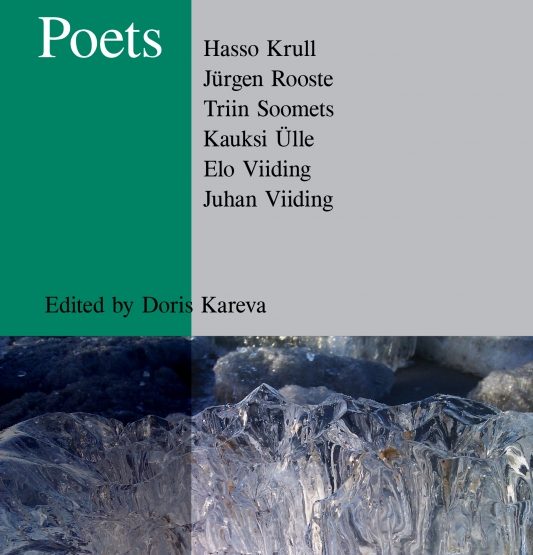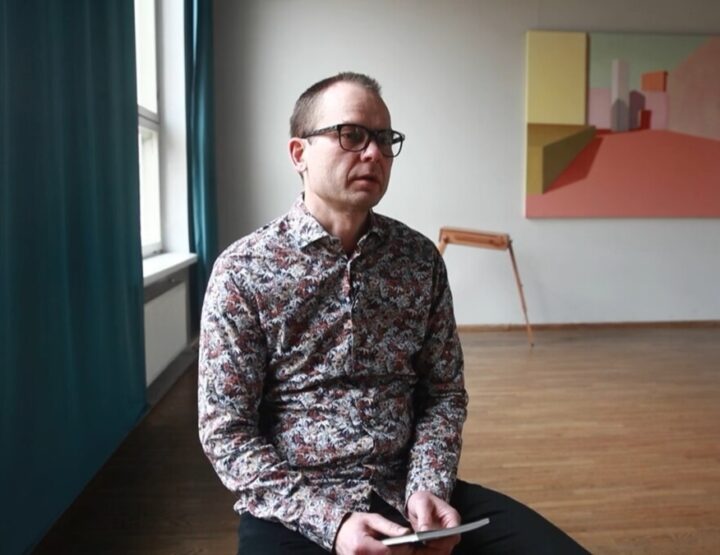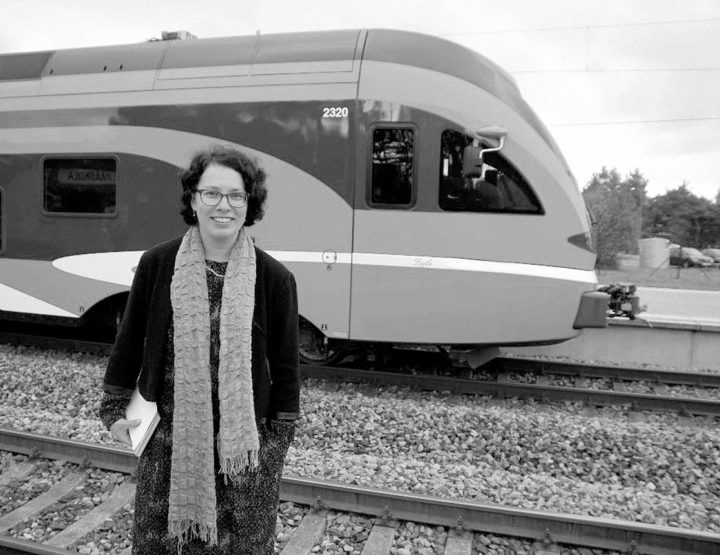Elo Viiding is one of the most distinguished Estonian poets, not only currently but also in terms of the history of Estonian literature. She is a woman who has a very strong, and at the same time also sensitive, social awareness: she strives to speak critically about problems in society and all the things that may oppress human freedom.
Elo Viiding was born on March 20, 1970 in Tallinn. She is the third poet in her family: her grandfather, Paul Viiding, belonged to the group Arbujad in the 1930s, and her father Juhan Viiding (pseudonym Jüri Üdi) was an innovative poet in the 1970s and has influenced many younger poets in Estonia. So it is understandable that people sometimes speak of a dynasty of Viidings in Estonian literature.
The theatre and music have also great importance for the Viiding family – her father was an actor and a dramatist and her mother was a music teacher in kindergarten. Elo studied violin in the Music Secondary School and she also graduated as an actress in 1999. It is apparent that theatricality is not a strange phenomenon in her poetry: different roles and identities have been characteristic of her poetic ‘ego’, as well as dramatic motifs and situations.
Elo Viiding’s debut under the pseudonym Elo Vee occurred in 1991, when she published her first collection of poetry, Telg (The Axis). The two next collections of poetry, Laeka lähedus (The Nearness of the Casket, 1993) and Võlavalgel (Under the Light of Debt, 1995), and the collection of short stories Ingelheim (1995) were also published under the same pseudonym. After the death of her father, she abandoned the pseudonym and she has published her recent collections of poetry under her real name: V (1998), Esimene tahe (The First Will, 2002) and Teatud erandid (Certain Exceptions, 2003). It seems she had a special relationship with her father: several years after his death, in the collection Teatud erandid, Elo wrote a long poem, Ühele häälele (For One Voice), where her poetic ‘ego’ turns to her father’s spirit, and through the mental conversation between daughter and father, two poets, is born a poem which crosses a number of borders, and breaks taboos and prejudices. Great mental freedom appears in that poem.
Kajar Pruul has written that one of the most important characteristics of Elo Viiding’s poetry is the existence of an independent person who has complicated relations with power and control. Viiding, as a poet, seeks to control the language of power. At the same time her poetic language is intellectual and ironic, and Kajar Pruul is of the opinion that characteristics like these make Viiding’s poetry original: it is not traditional “women’s” poetry, but is paradoxically masculine (see also Varjatud ilus haigus, Tallinn 2000, pp 175-207). In my opinion Viiding does not want to be either a feminine or masculine writer. It seems she wants to write beyond gender. She does not want to be a woman in the traditional sense in which society represents women. Some feminist motifs exist in her poetry, for example in her first collection and in the poem Feministlik luuletus (The Feminist Poem), in the collection Esimene tahe etc. Still it seems that Elo Viiding is not interested only in women’s problems; she writes often about different oppressed people. Titles such as Those men will break your bones, An Old Diva (Vana diiva), Staying in Another Place (Teisalejäämine) etc. indicate that her feminism is not pure feminism, but is instead more humanistic. Elo Viiding’s poetic ‘ego’ wants to be absolutely independent from social pressure and control – this seems to be the most important feeling for her. Her originality is also expressed in the language of her poetry, which is surprising and paradoxical. She uses both traditional verse forms and free verse, and she also plays with the boundaries of genre.
Of course every poet wants to be independent because it is not possible to be a good poet and at the same time quiet and complacent – poetry requires intrigues, conflicts and dramatic events. It also requires strong and powerful roles from writers who express their ideals and ideas in their poems. But different writers have different powers. If we compare Elo Viiding with other Estonian young poets, we see that, for example, Kristiina Ehin’s poetic power is in folklore and in an old, archaic lifestyle which is contrasted with the contemporary life of cities, and Triin Soomets creates her poetic conflicts within herself – she wants to change the world through herself, through her poetic ‘ego’; change in the world must begin from herself. Soomets’ poetry is mysterious, sometimes dangerous and frightening. Elo Viiding’s poetic language is quite different: she speaks more directly and assails different institutions and their power. Her style is a bit similar to Majakovski’s assaults on the bourgeois life-style and false life. If we compare Viiding’s poetry with Estonia’s great women poets, Marie Under and Betti Alver, we see that their irony is more implicit and social topics are more general. Therefore Elo Viiding’s poetry seems to relate more to the Estonian male poetry tradition.
One of the powerful institutions which is criticized in Viiding’s poetry, beginning with her first collections, is the school system. Pupils are controlled in the schools and they feel pressure from society. The same topic is treated also in her collection of short stories, Ingelheim. In the poem Meie kool / 1997 (Our School / 1997), she uses a list of pupils names. All names are numbered and ordered so we do not know who they are; we see only names. On the one hand these are insignificant names, but if we read the names we can see that they have different meanings; every name is original as every pupil is unique, despite the efforts of schools try to make all students the same. Viiding plays with the names in an ambivalent and ironic way:
…
1. Ahvenbaum, ABBA-Margit
2. Berg, Ingmar
[- – -]
3. Hallabert, Conservativa
[- – -]
35. Remarque, Erich-Maria
36. Sinimägi, Karl-Marx
[- – -]
39. Säde, Fellini
[- – -]
42. Tükike, Andromache.Mall
43. Vikatlind, Wojcek
44. Wagner, Hannelotte-Britt
45. Würfel, Interludiuma
In her most recent book, Teatud erandid, she is very critical of society and discloses political decisions which can enslave people: she writes that smoking is forbidden not because it is unhealthy for citizens, but because the economy needs more and more capable slaves. Viiding is very passionate when she writes about social control: critics control writers, theories control literature, politics controls people etc. Viiding’s poems are similar to Estonian writer Kivisildnik’s critical newspaper articles, although Kivisildnik is more humorous, while Elo Viiding’s texts are serious and ironical.
It seems that the mystery of Elo Viiding’s poetry lies in the fact that her original poems dealing with contemporary life connect the longing for naturalness and mental freedom – she is a poet who has a powerful and sensitive social awareness.
© ELM no 20, spring 2005




